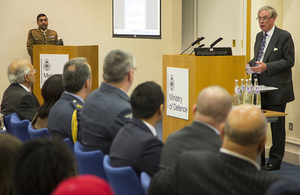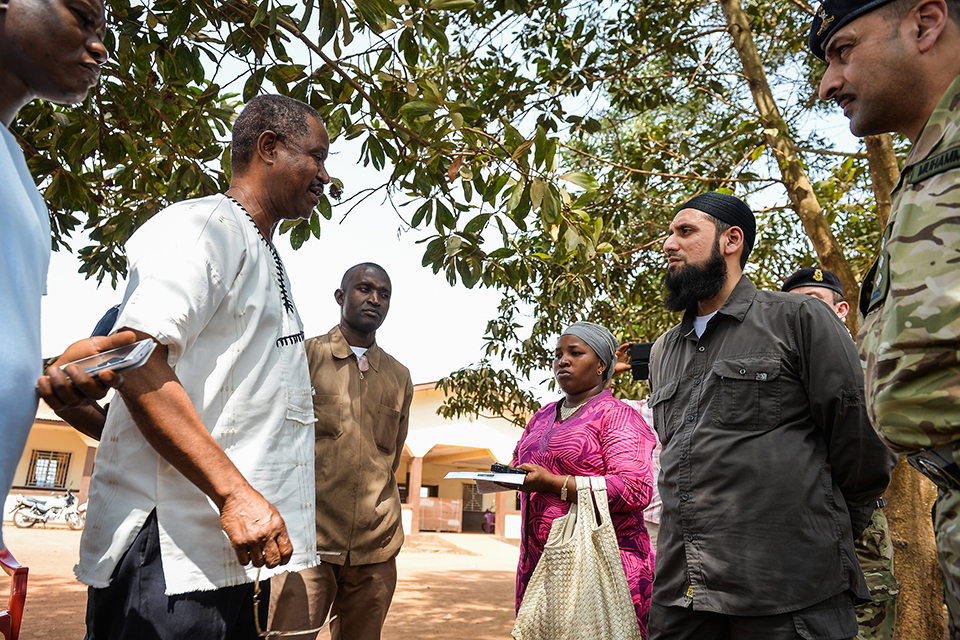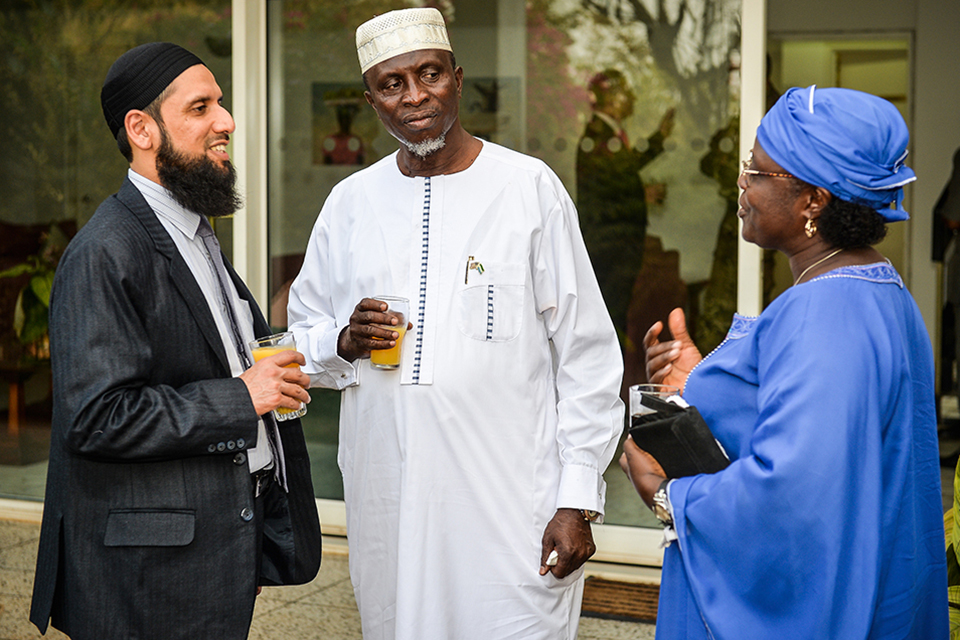MOD recognises Islam Awareness Week
Muslims and non-Muslims in the military came together at the Ministry of Defence this week to mark Islam Awareness Week

Lord Astor of Hever addresses an audience at MOD as part of Islam Awareness Week
The Armed Forces Muslim Association this week hosted an event to mark Islam Awareness Week. Held at the Ministry of Defence, the event included keynote addresses from Lord Astor of Hever, military personnel, and faith leaders, and aimed to highlight the important role of Muslims in the Armed Forces – to ensure that this national institution is representative of the society it serves.
Speaking at the event, Parliamentary Under Secretary of State and Lords Spokesman on Defence, Lord Astor of Hever, said:
While unfair misconceptions abound about the Muslim community, so too a parallel myth is being peddled by a minority – that the Armed Forces is no place for a Muslim.
Today allows us to put the record straight and show there is nothing incongruous about a Muslim in a British uniform.
Any society, any Armed Forces, is only as great as the sum of its parts. For us to succeed as a country, we must continue to draw on the talents of all our local communities.
Recognising the debate around why some Muslims feel a disconnect between their religion and serving in the Armed Forces, discussions highlighted some of the projects around the UK that are trying to combat this view.
Hifsa Iqbal, National Co-ordinator for Islam Awareness Week, said:
Islam Awareness Week was initiated by the Islam Society of Britain - one of the first organisations that sought to evolve a uniquely British flavour to Islam.
In order for this to happen, it was felt that Muslims would have to think seriously about understanding their faith in a British context. The main idea of Islam Awareness Week is to promote social cohesion rather than dwelling on differences.
And we want to raise awareness and remove misconceptions surrounding Britain’s second largest faith group. I believe Muslims should play a full part in the defence of our country.
Representatives from two new initiatives spoke about their work to build social cohesion: firstly, the IMPACT project from social enterprise ‘SHAPE’ that works with volunteers in the Bradford and wider West Yorkshire area to counter the negative narrative about our Armed Forces, and to show the benefits a career in the services can bring.
Secondly, the Oppo Foundation in Bury which uses football to bring together youth and faith communities to break down barriers and create greater understanding between our communities.

The Hon Raymond Kabia, Port Lake District coordinator and Imam Asim Hafiz
The event was also attended by Imam Asim Hafiz, Islamic Religious Advisor to the Armed Forces, who last week was in Sierra Leone visiting the military hospital facilities set up there to visit those suffering, and recovering, from Ebola.
As well as meeting Regular and Reserve military personnel who are part of the UK effort to tackle Ebola, he met with local Imams and community leaders and spoke at events held to educate local people on the dangers of Ebola and ways to avoid spreading the virus.

Imam Asim Hafiz talks to Sheikh Abu Bakarr Conteh and Rev Christina Sutton-Koroma
Imam Asim Hafiz said:
Many people like to say that faith is something that divides communities but faith is something that brings communities together.
I came out to Sierra Leone because I wanted to meet the British Armed Forces that are working here to help the Sierra Leonean population fight Ebola.
I wanted to do that because over the last ten or fifteen years we’ve been in very kinetic operations and that has created a certain perception of what the Armed Forces are about.
And so to be able to come here to Sierra Leone and observe the Armed Forces carry out a humanitarian operation was an amazing experience for me.
In recent years in the UK I’ve seen that there seems to be some tension between different faith communities. So to be able to take a lesson from the Sierra Leonean book, is important.
I think we can take this example of how Sierra Leoneans absolutely unconditionally support each other and work with each other, the fact that many of their places of religious worship are in the same compound, I believe is something that can be a lesson for many people in other parts of the world including the UK.